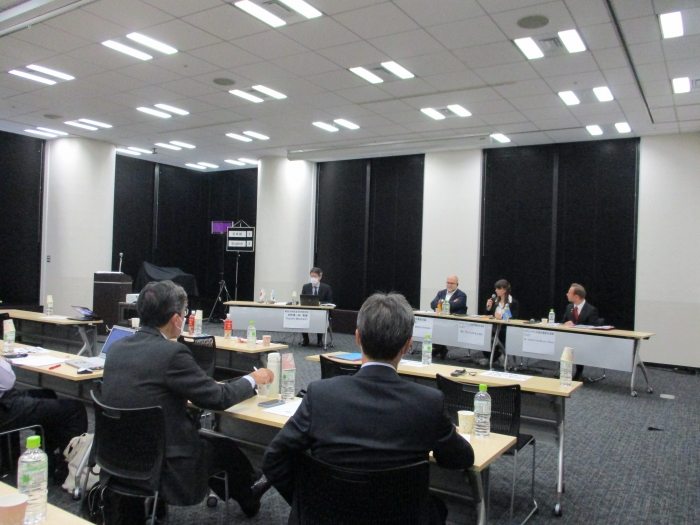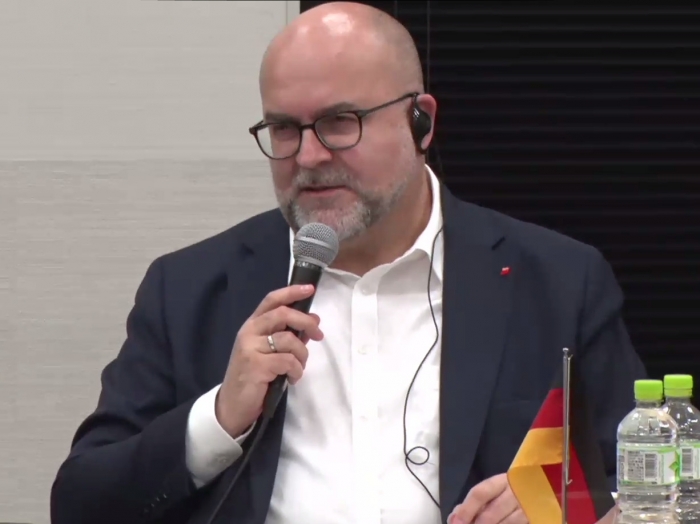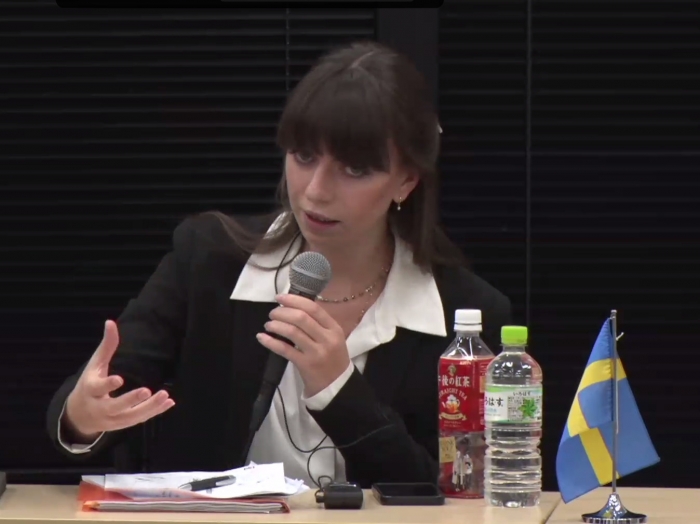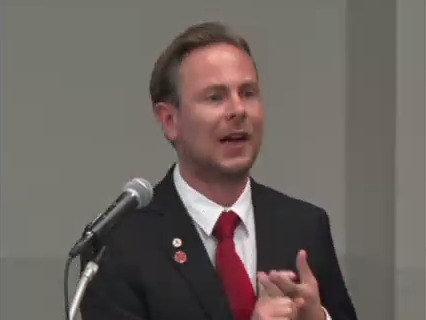Second International Symposium of 2022
On November 9, 2022 (Wednesday), an international symposium was held on the topic of “The Impact of COVID-19 on Employment and Labor and its Handling: The Current State and Issues Facing Platform Workers.” A total of seventy two people, including Japanese trade union officials, company personnel, academics, and the press, participated online. Trade union representatives from Sweden, Germany, and the UK, and experts from Japan were invited to speak at the symposium (the UK attendees spoke through a pre-recorded video), which featured reports from the respective attendees as well as a panel discussion.
After opening remarks by JILAF President Yasunobu Aihara, Shinichi Takasaki, the Director of the ILO Office for Japan, gave the first keynote speech on “Business and Human Rights,” then Yuichiro Mizumachi, a Professor of the Institute of Social Science at the University of Tokyo, gave the second keynote speech on “The Current State and Issues Facing Platform (PF) Workers.” After that, reports on the same topics were heard from Sweden, Germany, and the UK.
In addition, a panel discussion was carried out on the topic of “The Current State and Issues Facing PF Workers.” Professor Mizumachi and the trade union representatives from Sweden and Germany took part in the discussion.
<Panel Discussion> Summary
・The increase in PF work poses new problems that are not encompassed by industrial relations and systems. AI and algorithms thus far have had an impact on employment relations.
・Figuring out what the social insurance system should do about compensation for accidents, education and training, basic labor rights, and minimum wage for PF workers is an issue shared by each country and a serious problem.
・The EU has made a proposal to protect PF workers. In countries with strong industrial relations, minimum wage so far has been decided between labor and management. However, PF workers have entered the labor market as new players, causing confusion. In countries where matters are determined by an autonomous agreement system, PF workers will be protected by agreements.
・Many PF workers are young and engage in hard work for low pay. But in France, people argue that PF businesses must not be deteriorated in order to ensure their sound development. It is also true that people who could not work before are now entering the labor market.
・It is important for basic social protection to include compensation for injuries and accidents, education and training, and protection of basic labor rights. In Europe and the US, there is a debate about guaranteed minimum income, but due to the online nature of PF work, working hours are irregular, making it impossible to have a basic standard of living.
・In Japan, the new Freelance Law is expected to be discussed in the current National Diet. However, the content mainly centers on the economic legal rules for fair competition (Anti-monopoly Law) among business owners, and only describes social protection as nothing more than “consideration for childbirth, childcare and family care” and “measures to prevent harassment.” Japan’s challenges for the future include protecting basic working conditions and positioning the national social security system. The law only provides a basic guaranteed foundation, and it is important that we resolve our problems (new business and worker protection) through industrial relations. We believe that we were able to recognize the importance of matters concerning labor movements and the law, such as how workers should be organized and disseminating information using IT. The challenges in Japan are the same as those overseas, and we look forward to everyone’s activities in the future.




